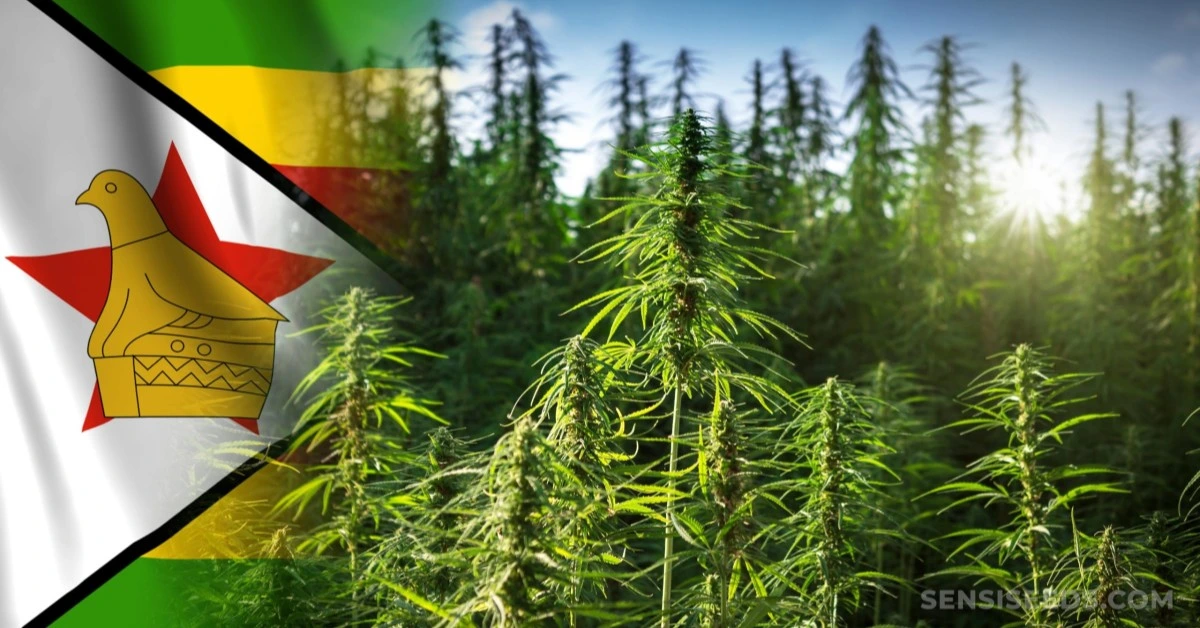
HARARE – Zimbabwe has taken a bold step to boost its agricultural economy by legalizing cannabis cultivation and eliminating laws mandating sole state ownership of cannabis farms.
This move is designed to attract investment and position the country as a key player in the rapidly expanding global cannabis market for industrial and medicinal purposes.
The decision comes as global demand for cannabis is projected to rise, while tobacco production is expected to decline by 15% by 2030.
Meanwell Gudu, CEO of Zimbabwe’s Tobacco Industry and Marketing Board (TIMB), emphasized the need for diversification:
“One of the alternative crops we are looking at is industrial hemp. We want to be part of the entire industrial hemp chain,” he said.
In 2021, Zimbabwe’s tobacco industry generated US $819 million in revenue. However, with 145,000 registered tobacco growers in the country, government initiatives now aim to shift at least 25% of farmers’ income to cannabis cultivation by 2025.
The global cannabis market is forecast to generate US $1.25 billion in sales this year, with analysts predicting its value could reach US $272 billion by 2028, according to Barclays.
Early success in cannabis exports
Zimbabwe’s first foray into the European market saw the export of 30 tonnes of industrial hemp to Switzerland in 2022, facilitated by the Zimbabwe Industrial Hemp Trust (ZIHT).
Zorodzai Maroveke, ZIHT’s founder, highlighted their collaboration with the TIMB to ensure a “smooth transition” for farmers venturing into commercial cannabis cultivation.
To date, the Zimbabwe Investment and Development Agency (ZIDA) has issued licenses to 57 local and foreign entities for medicinal cannabis production.
Some farms have already begun cultivation, underscoring the sector’s potential to rival tobacco as the country’s top agricultural export.
Regional and global context
Zimbabwe joins a growing list of African nations, including South Africa, Malawi, Zambia, and Lesotho, that have legalized medicinal cannabis.
The global trend highlights cannabis’s versatility and economic potential, with its cannabidiol (CBD) widely recognized for its health benefits, including cancer treatment.
Finance Minister Mthuli Ncube has set ambitious goals for the sector, expressing hopes that cannabis will generate over US $1 billion in annual revenue—surpassing tobacco.
This shift aligns with health-conscious trends, as cannabis is seen as a less harmful alternative to cigarettes, which are linked to significant health risks.
Challenges and opportunities
Despite the promise, cannabis cultivation in Zimbabwe remains an expensive venture.
Greenhouses, essential for meeting “organically grown” standards required by the medical cannabis market, cost around US $500,000 to set up, excluding additional inputs like drip irrigation systems.
Farmer and entrepreneur Nyanungo, who operates Forest Farm in Mashonaland East, shared his experience:
“This entire greenhouse: you need something around US $500,000 just to set up the structure. Growing a single hectare of cannabis can cost up to US $2.5 million,” he explained.
Nyanungo’s farm transitioned to cannabis in 2020 under an off-take agreement with U.S.-based King Kong Organics, which supplies seeds and buys the harvest for processing.
Despite the high costs, the potential returns are substantial; his first cannabis harvest in August is expected to yield US $2.5 million in profit—far surpassing the earnings from traditional crops like maize and tobacco.
While producers are lobbying for relaxed regulations to reduce costs, the government’s focus remains on ensuring high-quality standards to meet international market demands.
“If anyone is going to grow medical-grade cannabis, it’s going to be at their risk because there are too many variables,” said Maroveke.
Yet, the rewards are evident, and Zimbabwe is determined to carve out a significant share of the lucrative global cannabis market.
XRP HEALTHCARE L.L.C | License Number: 2312867.01 | Dubai | © Copyright 2025 | All Rights Reserved